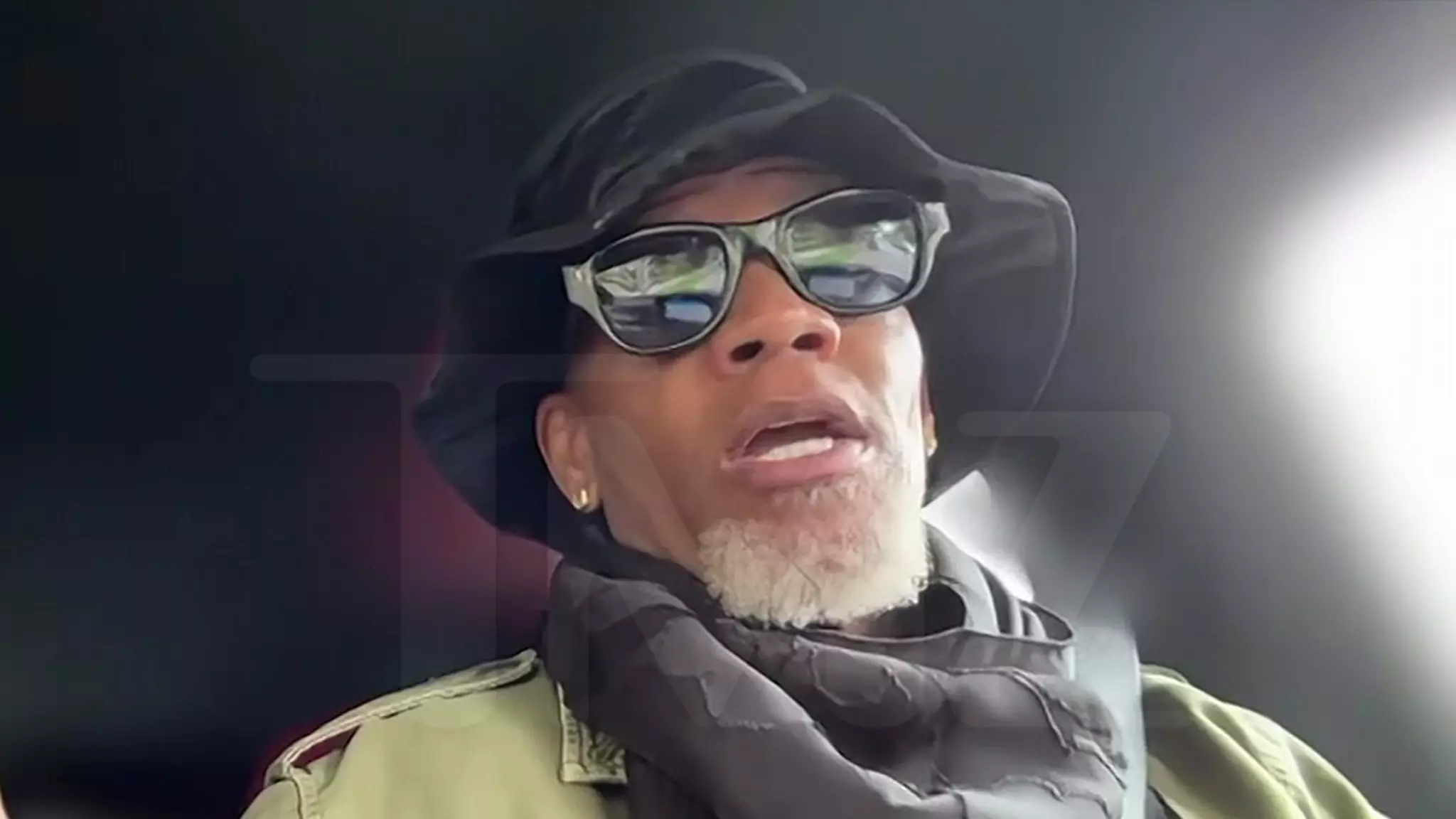In a society increasingly entangled in political polarization, D.L. Hughley sheds light on the absurdity of Mike Pence receiving the John F. Kennedy Profile in Courage Award. This accolade was presented to Pence for his actions on January 6, 2021, when he upheld the certification of election results amidst unprecedented chaos at the Capitol. To Hughley, this honor symbolizes a troubling reality; it reflects a nation where the bare minimum of civic responsibility is now deemed extraordinary. Instead of commemorating commendable acts of bravery, recognition has shifted to what should inherently be an obligation—abiding by the Constitution.
Hughley astutely argues that Pence’s actions were far from heroic; after all, swearing an oath to uphold the Constitution is integral to any public servant’s duty. However, the climate surrounding Pence’s decision has made it noteworthy in a manner that once would have been unfathomable. The comedian remarks on the unsettling state of the nation—when merely adhering to one’s duties is celebrated, one can’t help but wonder how far America has deviated from the ideals that founded it.
The Tragedy of a Stagnant Democracy
The award and its implications lead to a conversation about the health of American democracy. D.L. Hughley rightly points out that instead of heralding Pence as a symbol of courage, we should confront the troubling reality that his act of patriotism was a moment of pause in a larger, chaotic struggle for power. The rise of Donald Trump and the incendiary rhetoric surrounding his administration underscore not only political division but also the erosion of trust in democratic processes.
It’s telling that Pence’s integrity could only momentarily deter Trump’s pull towards the presidency. This highlights the absurdity of praising fundamental democratic principles when fundamental respect for those principles is under siege. In this scenario, Pence’s decision becomes paradoxical: it is both an act of loyalty to the Constitution and a stark reminder of a democracy hanging by a thread.
A Public Servant or a Politician?
Hughley characterizes Pence as a “principled man,” a sentiment that invites contemplation about the nature of public service. Is a politician’s adherence to their sworn duties commendable, or is it merely status quo? The comedian’s analysis invites us to ponder: Can we truly celebrate individuals in politics who simply do what they pledged to do? The failure of the political system to shield citizens from undue chaos and uncertainty underlines an existential crisis in American governance. It challenges us to reevaluate our definitions of courage and leadership in politics.
As Pence accepted his award, he spoke of the Constitution as the glue binding America together, citing January 6 as a “tragic day,” but one that was ultimately a “triumph of freedom.” This rhetoric is convenient, yet it glosses over the very real implications of that day and the fractures it revealed. The question begs: Are we triumphing in our freedoms, or are we merely clinging to the remnants of a fledgling democracy?
In the end, Hughley’s insights serve as a clarion call; while we recognize those who uphold their oath, we must also acknowledge the deeper issues at play that necessitate such recognition. The irony of honoring Pence should not be lost on us—it is a stark reminder that in today’s political landscape, doing one’s job can signify both courage and an alarming departure from the norm.

Leave a Reply